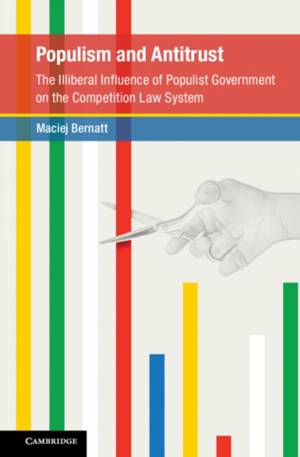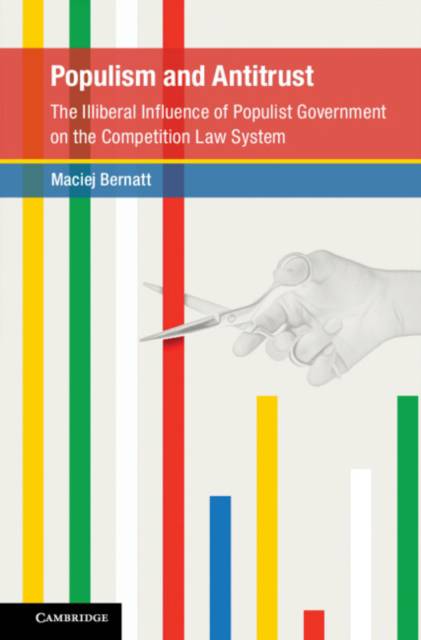
- Afhalen na 1 uur in een winkel met voorraad
- Gratis thuislevering in België vanaf € 30
- Ruim aanbod met 7 miljoen producten
- Afhalen na 1 uur in een winkel met voorraad
- Gratis thuislevering in België vanaf € 30
- Ruim aanbod met 7 miljoen producten
Zoeken
Populism and Antitrust
The Illiberal Influence of Populist Government on the Competition Law System
Maciej Bernatt
€ 187,45
+ 374 punten
Omschrijving
Competition law is designed to promote a consumer-friendly economy, but for the law to work in practice, competition agencies - and the courts who oversee them - must enforce it effectively and impartially. Today, however, the rule of populist governments is challenging the foundations of competition law in unprecedented ways. In this comprehensive work, Maciej Bernatt analyses these challenges and describes how populist governments have influenced national and regional (EU) competition law systems. Using empirical findings from Poland and Hungary, Bernatt proposes a new theoretical framework that will allow the illiberal influence of populism on competition law systems to be better measured and understood. Populism and Antitrust will be of interest not only to antitrust and constitutional law scholars, but also to those concerned about the future of liberal democracy and free markets.
Specificaties
Betrokkenen
- Auteur(s):
- Uitgeverij:
Inhoud
- Aantal bladzijden:
- 300
- Taal:
- Engels
- Reeks:
Eigenschappen
- Productcode (EAN):
- 9781108482837
- Verschijningsdatum:
- 24/02/2022
- Uitvoering:
- Hardcover
- Formaat:
- Genaaid
- Afmetingen:
- 152 mm x 229 mm
- Gewicht:
- 539 g

Alleen bij Standaard Boekhandel
+ 374 punten op je klantenkaart van Standaard Boekhandel
Beoordelingen
We publiceren alleen reviews die voldoen aan de voorwaarden voor reviews. Bekijk onze voorwaarden voor reviews.











